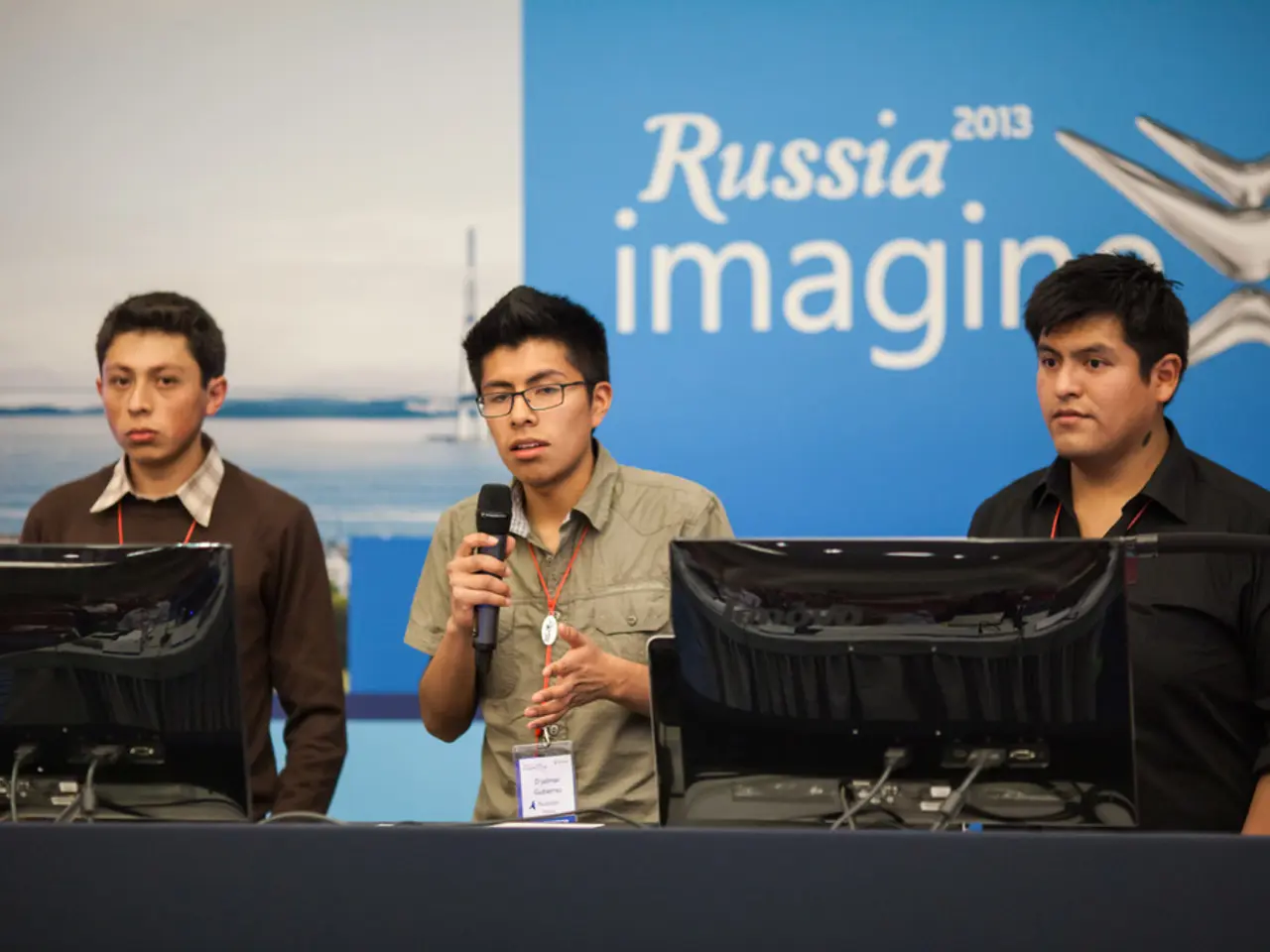Trump-Putin Meeting Initiates: European Leaders Advocate for Ukraine Peace Accord - International leaders from Europe call for an end to the ongoing conflict in Ukraine, emphasizing the necessity of a truce during the meeting between President Trump and President Putin.
In a significant move, European leaders have united in their stance towards the upcoming meeting between U.S. President Donald Trump and Russian President Vladimir Putin, scheduled for Friday in the U.S. state of Alaska.
The Coalition of the Willing, led by Germany, France, and the UK, has emphasised the need for a peaceful resolution to the ongoing conflict in Ukraine. This coalition, which also includes Canada, Japan, and the U.S. Vice President JD Vance, held a series of video conferences on Wednesday, with the participation of President Volodymyr Zelenskyy and Vice-President Vance.
Chancellor Friedrich Merz described the meeting as "really very constructive and good." He expressed hope for peace in Ukraine, but emphasised that fundamental European and Ukrainian security interests must be preserved at the meeting between Trump and Putin.
The Coalition leaders, including French President Emmanuel Macron and British Prime Minister Keir Starmer, welcomed Trump's efforts for peace and emphasised that Ukraine must be central to any peace decisions. They stated clearly that negotiations must occur under a ceasefire or lasting halt of hostilities, sanctions and economic pressure on Russia’s war economy should increase if Russia rejects a ceasefire, borders must not be changed by force, Ukraine requires credible security guarantees to defend sovereignty and territorial integrity, and Russia cannot veto Ukraine's integration with EU and NATO.
President Zelenskyy reiterated the need for strong sanctions if Russia refuses meaningful diplomacy and highlighted a broad Coalition of more than 30 countries, including Japan and Canada, committed to supporting Ukraine.
Selenskyj also called for increased pressure on Putin through sanctions. The Coalition of the Willing has mentioned the strengthening of existing sanctions if the talks on Friday fail. U.S. President Trump again threatened Putin with "very serious consequences."
EU Commission President Ursula von der Leyen also called the phone call "a very good one." NATO Secretary-General Mark Rutte praised Trump's "leadership role" and his "close cooperation with allies."
In a notable development, Zelenskyy expressed hope for a quick trilateral meeting with Trump after his summit with Putin. Both Zelenskyy and Merz emphasised the need for robust security guarantees for Ukraine.
The latest position of the Coalition of the Willing follows discussions with U.S. President Trump and Ukrainian President Zelenskyy. It emphasises that meaningful negotiations on Ukraine's conflict require a ceasefire or significant cessation of hostilities first. They support strengthening sanctions and economic measures against Russia if it does not agree to a ceasefire, reject any forceful changes to international borders, and back robust security guarantees for Ukraine that include no limitations on its armed forces or cooperation with third countries. The Coalition is also ready to actively support security through potential reassurance forces after hostilities end and insists Russia must not veto Ukraine's path to EU and NATO membership.
This unified stance demonstrates an integrated approach of active diplomacy, continued military and economic support for Ukraine, and firm pressure on Russia through sanctions, alongside a clear call for security assurances and respect for international borders.
- The European Parliament, comprising members from various European nations, has joined the Coalition of the Willing in urging a peaceful resolution to the conflict in Ukraine, emphasizing the importance of negotiating under a ceasefire or lasting halt of hostilities, increasing sanctions and economic pressure on Russia’s war economy, and backing Ukraine's integration with the EU and NATO without Russian veto.
- Amidst the escalating war-and-conflicts situation, politics in the European Union have focused on the ongoing conflict in Ukraine, with the European Parliament voicing their support for the Coalition's stance, seeking a peaceful resolution through meaningful negotiations, robust security guarantees for Ukraine, and the preservation of international borders.







